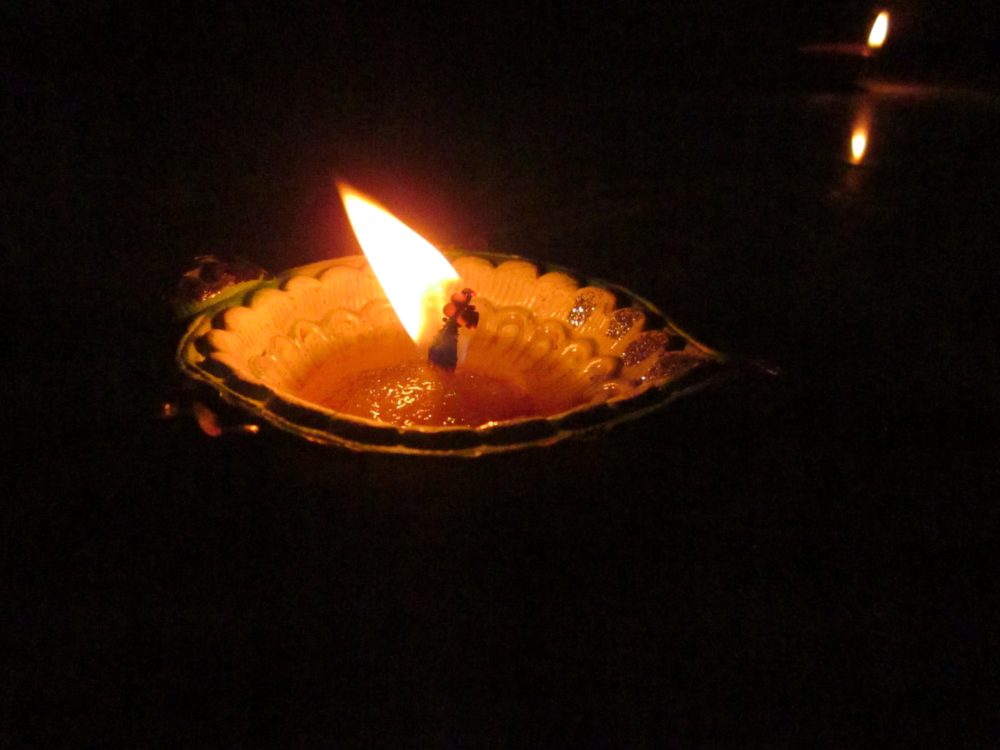| When I left for college, flying out over Long Island Sound, or when I returned, having extracted myself from a small town amidst cornfields to soar over the dense boroughs of New York, I’d gaze out that rounded airplane window at the sky rises, each with thousands of windows representing millions of human lives, and get a dizzy, nauseating form of vertigo, not from being at ten thousand feet but from feeling small. At home with my loving family or at school, my life was large and all-consuming—writing papers, sharing meals, working my Christmas break job at the book store. But from above I could see the immensity of the human body, from the jagged skyline of Manhattan to the packed neighborhoods of Queens, and in proportion I was trifling, an insignificant number, which my high school math teacher described as the weight of ashes in an airplane’s armrest ashtray compared to the weight of the whole. My heart would clench. My breathing would quicken. Given that earth was teeming with people, how could my little life matter? By contrast there’s my daughter, who rescues ants from her middle school’s third floor, allowing them to crawl over her fingers until she frees them on the grass. She reveres little life. In Gwyn’s world, she’s huge and powerful. Her actions make an unquestionable difference. Most days my perspective is proportional to ordinary life. I trust that the kiss I plant on Gwyn’s head as she heads off to school matters, as does my facilitation of last night’s writing group and the effort I make to avoid fossil fuels or vote. I believe that my work and presence have value. Having faith in my significance is a blessed way to traverse the cycles of life. Every once in a while, however, that vertigo returns and I find myself gasping and panicked. With both my parents dead and family far away, the holidays this year feel unanchored, empty. I wander in the sunshine of an unseasonably warm winter, unable to tether myself to the season’s rituals and increasingly terrified of climate change. Through November and December, each night’s darkness clamps a degree tighter. Much as my rational brain knows I have a critical role to play in creation, I can’t explain my way out of despair. I am nothing. I am dust, a wisp of Elizabeth, here then gone. How can I carry on? While my heart drifts in the void of space, heels over head, I do carry on nonetheless. Inspired by Clark Strand’s marvelous book, Waking Up to the Dark, once a week our family practices what we call “holy darkness,” an hour without screens or lights, usually spent hanging out on the couch although sometimes we walk around the golf course near our house, experiencing that lost, vulnerable sensation of being outdoors at night. It’s a tiny sabbath. At first Emily lit a plate of pillar candles, which lit up our house with dancing shadows. But then we decided one candle was plenty. A single flame really does push back the dark. In the Christian year, advent is the season of waiting in darkness. Perhaps my heart is more linked to the cycles of ritual than I’m aware; perhaps it’s only right that, once a year, we face our insignificance. But that’s not the whole story. The earth turns. Children rescue ants. A baby is born and, along with every other baby that’s born, reminds us that life is holy. Light shines in the darkness. -Elizabeth Jarrett Andrew |
